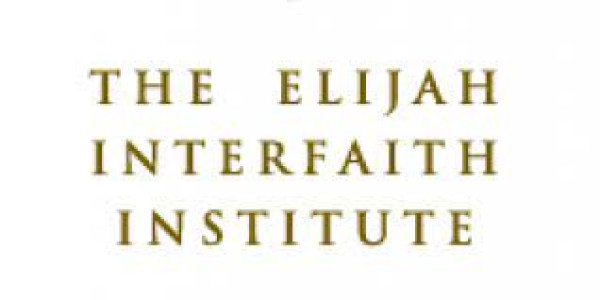Idolatry - A Contemporary Jewish Conversation
Elijah Releases New Book
27/06/2023 | Na stronie od 28/06/2023

Source: Elijah Interfaith Institute
As part of its ongoing work in the field of Jewish Theology of Religions, Elijah is proud to release a new book. Idolatry - A Contemporary Jewish Conversation goes to the heart of the theological challenges of today. Following earlier work, that examined the status of other religions as idolatry, the present volume explores if and what continuing relevance the category of idolatry, Avoda Zarah, holds. If other religions are cleared of the charge of Avoda Zara, does the term idolatry still hold any meaning for us today?
With the advance in interfaith relations, positions have been affirmed that clear most major contemporary religions from the charge of idolatry. What remains of "idolatry" once it no longer serves as a tool for evaluating other faiths? Does the category continue to have theological appeal? What are its internal uses? A cadre of Jewish scholars and thought leaders explore in this volume what the continuing relevance of "idolatry" is and how it might continue to inform our religious horizons, allowing us to distinguish between good and bad religion, both within Judaism and beyond. 16 of the top names in Jewish thought and philosophy struggle to define what idolatry might mean for us today, if it is not used as a means of assessing the validity of another religion.
Praise for Idolatry - A Contemporary Jewish Conversation
“Idolatry is a profound, probing yet engaging exploration of human misdirection whose roots are as ancient as human yearning. This book springs from history and scholarship but it speaks to our society and to the individual heart.”
— Rabbi David Wolpe, Max Webb Senior Rabbi, Sinai Temple, Los Angeles
“This remarkably rich anthology—beyond disabusing anyone who might still be operating under the notion that the biblical injunction against idolatry can be limited to worship of ‘sticks and stones’—suggests many thought-provoking extensions of the traditional injunction against false gods both within Judaism and without. The efforts of an impressive array of contributors to pin-point in contemporary terms just what is problematic about this deviant form of worship not only revive the theological relevance of this ancient prohibition: the wide variety of perspectives that they introduce also bear important implications for current attempts at interfaith dialogue, subtly shifting the nature of the discourse from rarefied debates regarding the precise doctrinal imperatives of monotheism to broader moral interests and concerns, questions of pluralism and tolerance, social theory, education, and politics. In spelling out the multitude of theoretical and practical dimensions of this discussion, Idolatry: A Contemporary Jewish Conversation powerfully challenges Jews and non-Jews alike to revisit the notion of idolatry, and rediscover its importance as a critical category of thought.”
— Tamar Ross, Professor Emerita, Department of Jewish Philosophy, Bar Ilan University
“Alon Goshen-Gottstein has put together a sterling volume of outstanding contributors for new directions for the concept of ‘idolatry’ in Jewish thought. For Goshen-Gottstein the traditional interest in idolatry for rejecting other religions has largely been surpassed. So, this volume aims to retrieve ‘idolatry’ as a live concept for our age. This book is both an intellectual and spiritual diamond.”
— Jerome Yehuda Gellman, Professor of Philosophy Emeritus, Ben-Gurion University
“The discussion of idolatry is surely of tremendous importance. Nearly all religions and philosophies consider it awful. But what is idolatry and why is it ‘awful’? That debate is the core of this fascinating book. Is it wrong when we do not put God at the center of the universe and our lives? But what is really the problem? Does God really mind? Or is idolatry forbidden because it is the source for great evil and immorality? If so, what about idol worship or atheism that does not lead to evil and in fact encourages the good? Or is this a contradiction in terms? Rabbi Dr. Alon Goshen Gottstein has managed to pull together some of the greatest religious thinkers of our time to try to respond to these questions. Intriguing: I could not put this book down once I started.”
— Rabbi Dr. Nathan Lopes Cardozo, Dean of the David Cardozo Academy Jerusalem
More:
Idolatry: A Contemporary Jewish Conversation, Academic Studio Press